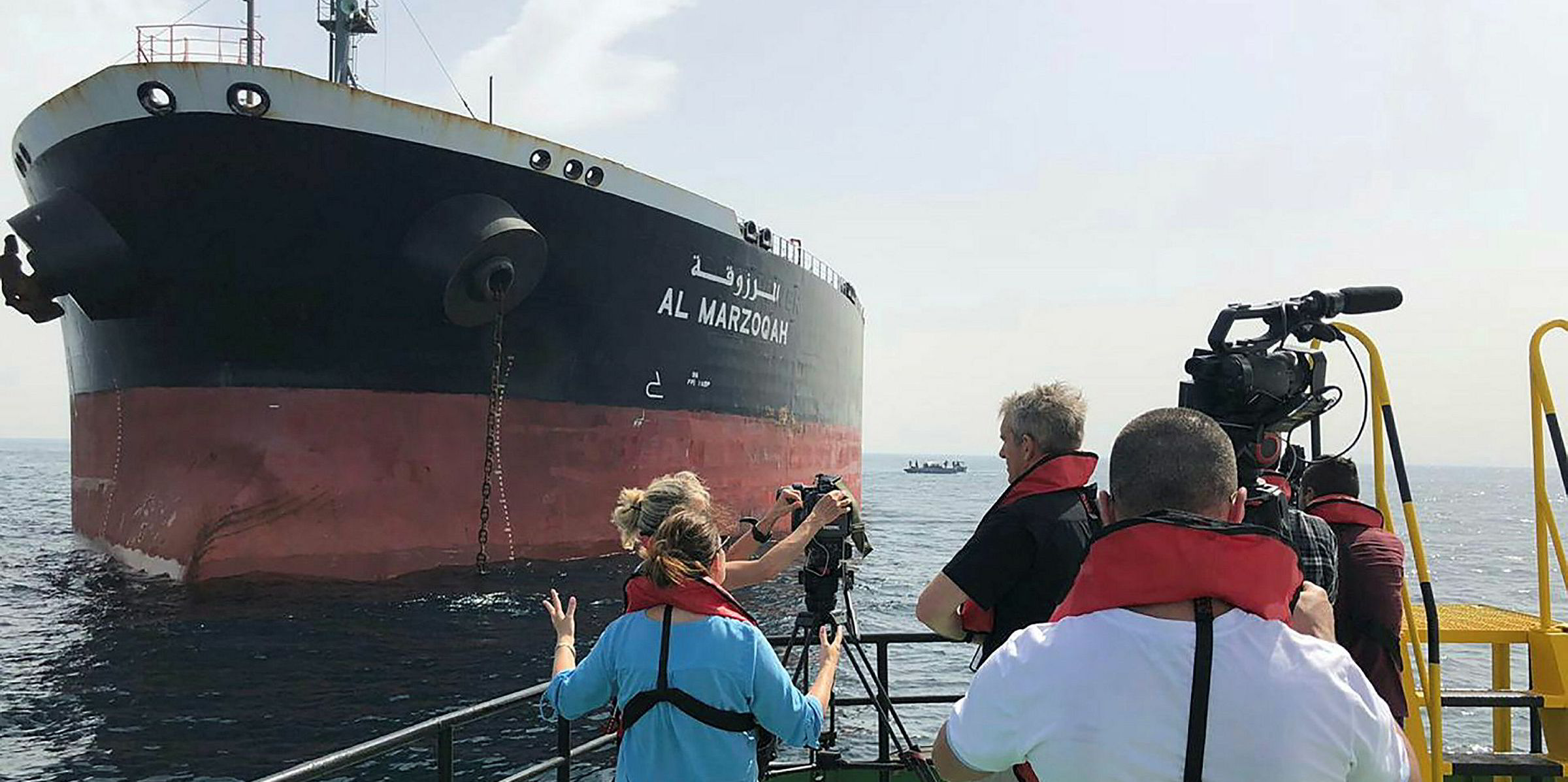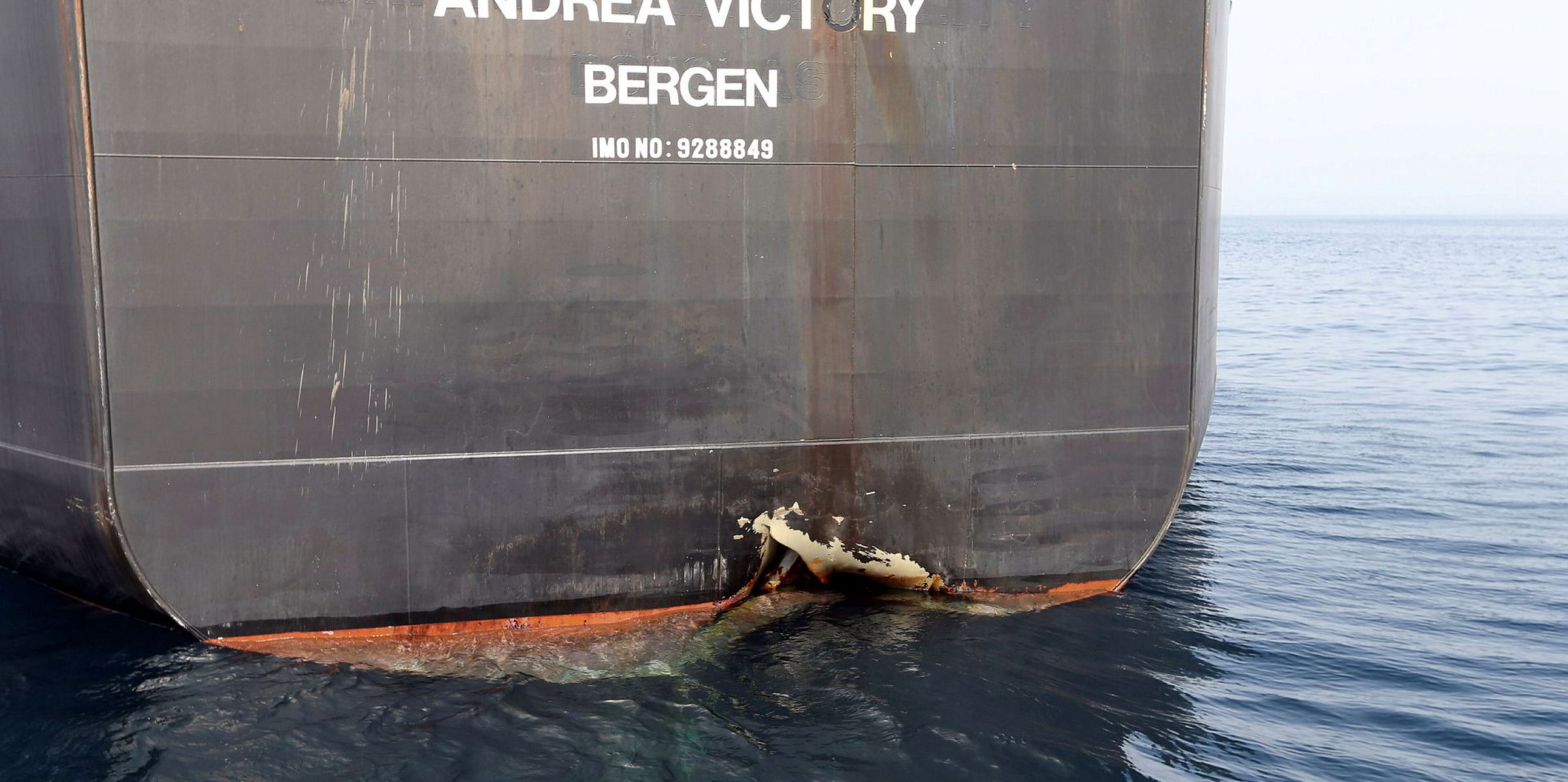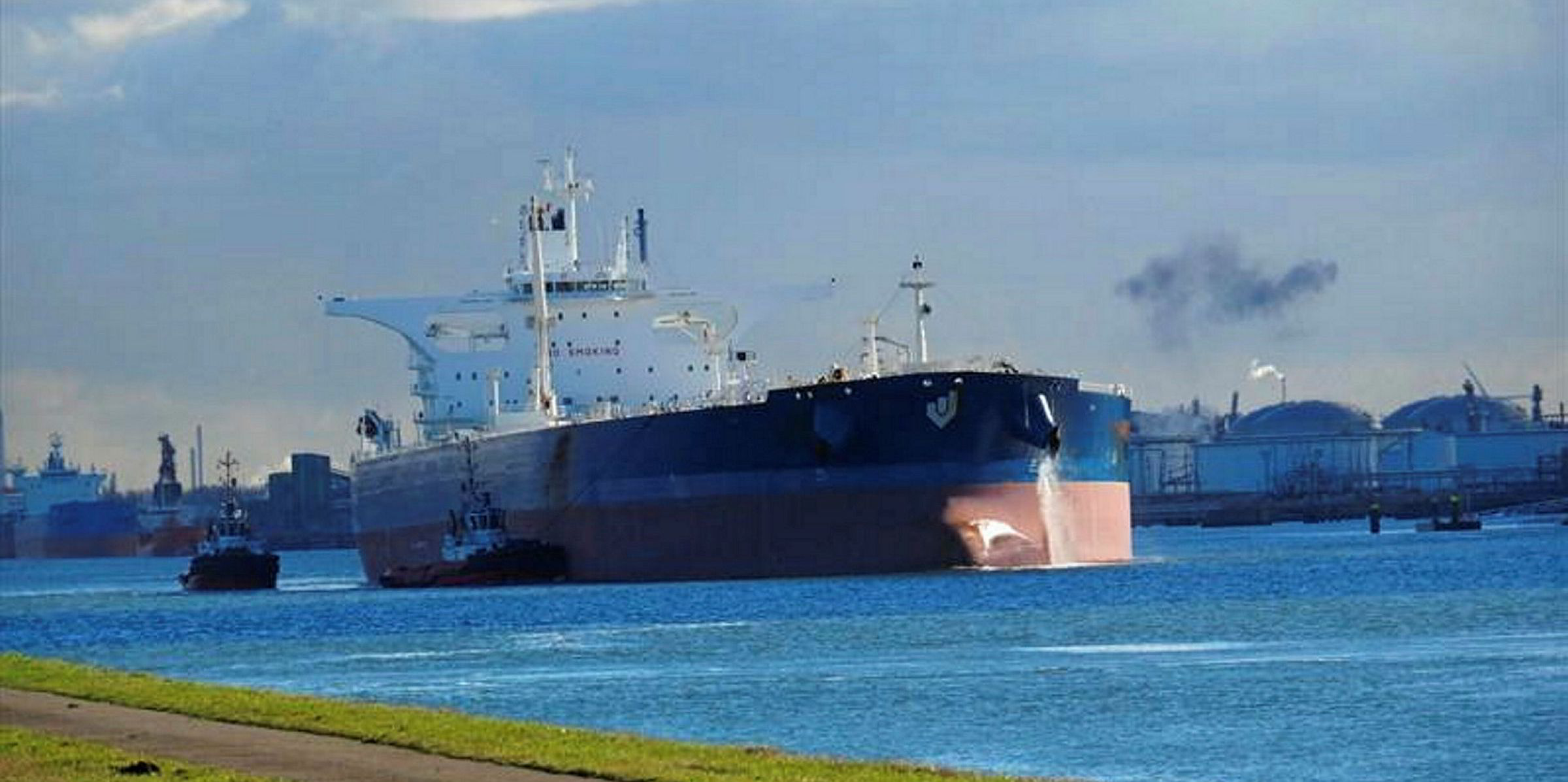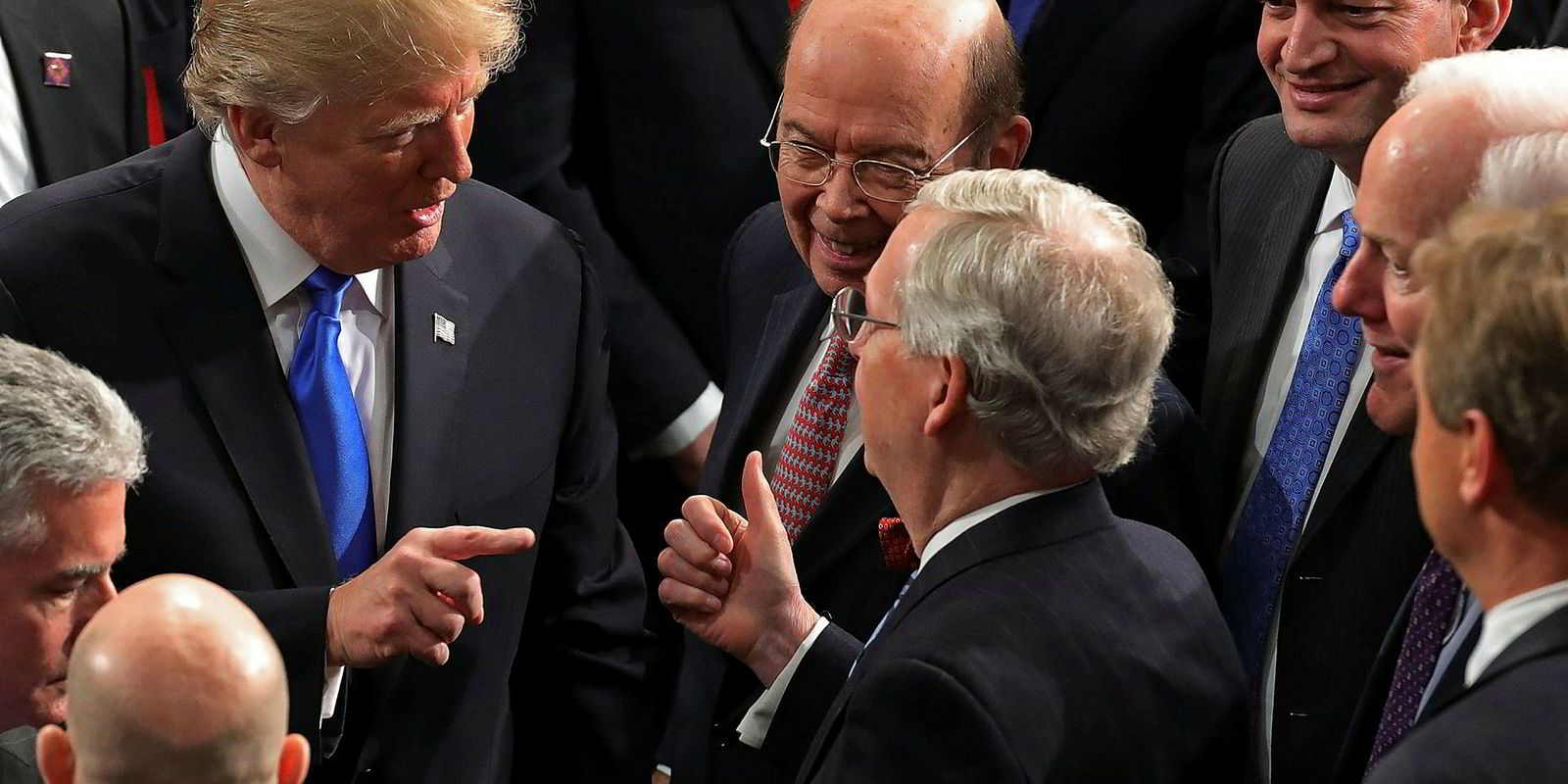The attack on four tankers in the Middle East Gulf is a grim reminder of the importance — and fragility — of oil shipments in the region. Up to 40% of the world’s crude moves through a nearby narrow waterway, the Strait of Hormuz.
After the attack, the price of Brent crude on global markets leapt 2% to nearly $72 per barrel, even as the US-China trade war escalated.
The imposition of new tariffs and counter-tariffs by US President Donald Trump and Chinese counterpart Xi Jinping will likely depress trade volumes, cut oil use and push down commodity prices.
Opposing pressures
But those downward pressures were overridden by the holing of the 299,000-dwt VLCC Amjad (built 2017) and 105,000-dwt aframax Al Marzoqah (built 1999).
The Thome Ship Management-controlled, 47,210-dwt product tanker Andrea Victory (built 2005) and 6,700-dwt bunkering tanker A Michel (built 1998), which is registered in Sharjah in the United Arab Emirates, were also hit.
All four vessels were anchored or operating off the UAE port of Fujairah, and it looks like their hulls were struck by projectiles.
It is not yet clear who is to blame.
But it is not hard to speculate who might have been responsible, given the political tensions in the area. The most obvious candidate would be Iran. US officials told the Associated Press that an initial assessment points to Iran or its allies.
Equally, one could imagine the crime was committed by enemies of Tehran, who may want to discredit it and give someone an excuse to strike back.
Iran’s Ministry of Foreign Affairs described the attacks as “dreadful” but Iranian leaders had warned recently that they might block the Strait of Hormuz.
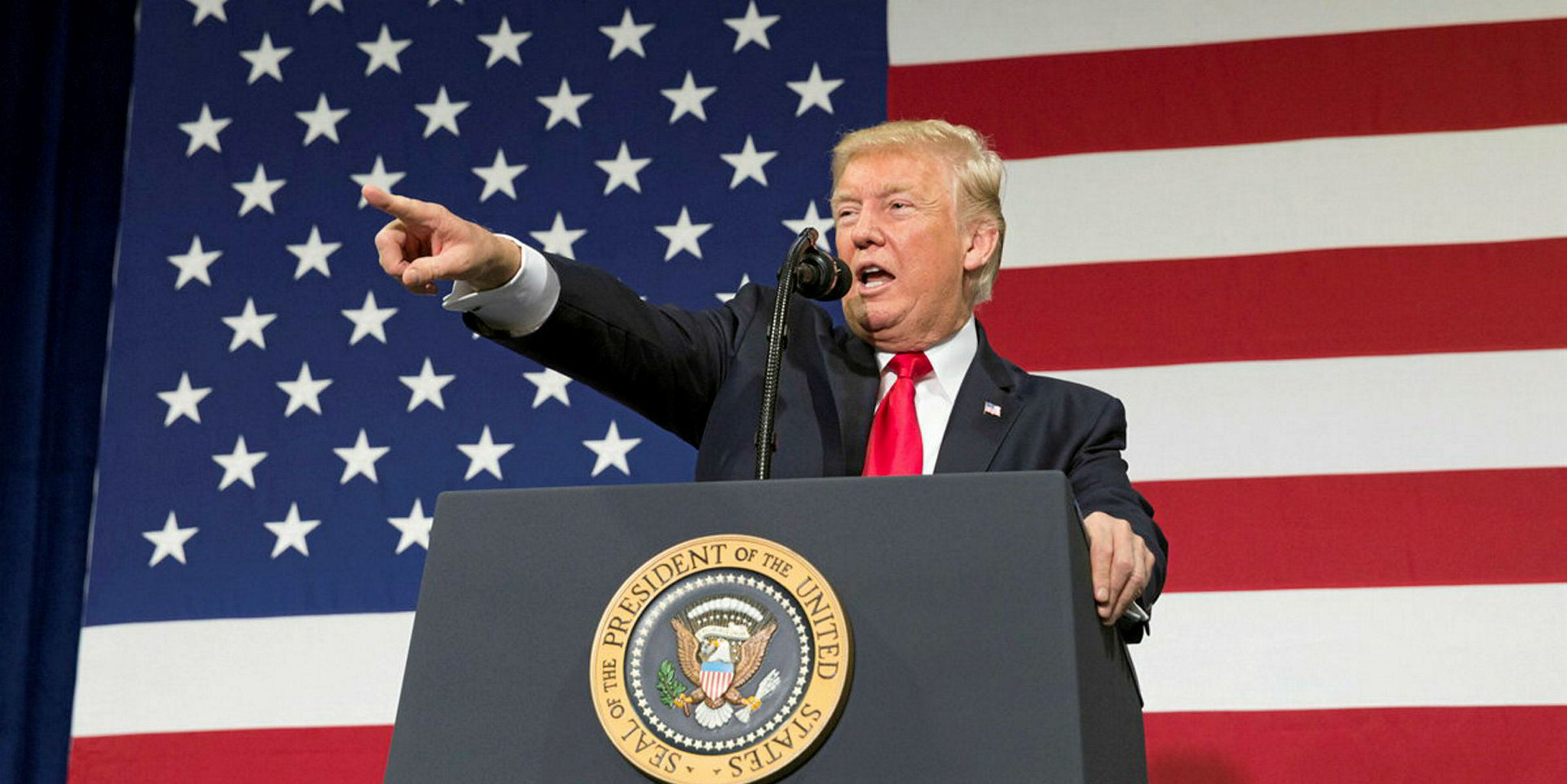
It is hard not to conclude that all of these bellicose words and actions against rivals or historic enemies by the US and others are partly connected to the rise of nationalism
All this comes amid rising tension between the US and Iran.
It was almost a year ago that Trump first took the decision to scrap the nuclear deal drawn up between world powers.
Waivers withdrawn
And, only three weeks ago, the US president scrapped the remaining sanction waivers on those countries accepting Iranian oil.
A week ago, the White House announced that it was sending an aircraft carrier strike group with bombers to the region.
Then, a few days ago, the US Maritime Administration (MarAd) warned that Iran or its proxies could respond by targeting tankers or other vessels associated with the US in the Persian Gulf. At least one of the tankers holed was bound for Saudi Arabia to load crude for carriage to the US.
This time last year, I wrote that the decision by Trump to pull out of the nuclear deal with Iran — a move that the European Union, Russia and China could, for no reason, understand or support — was a dismal setback for shipping.
The Iranian maritime sector was beginning to re-establish normal global trading and investment patterns. That followed the easing of sanctions by then US President Barack Obama after seven years of restrictions on Iran.

National Iranian Tanker Co (NITC) was back using international protection and indemnity clubs, such as Skuld, chartering out vessels to the likes of Shell and about to start a $2.5bn fleet-renewal programme.
But that was all stopped in its tracks. Now, as Britain’s Foreign Secretary Jeremy Hunt put it this week, the US and Iran are in danger of sliding into a war that surely no one wanted.
Surely it does not make sense even for the US? Trump has been calling on Opec to lower the global oil price by increasing its agreed output target.
And yet the US’ reintroduction of tighter and tighter sanctions against Iran is reducing that country’s exports and pushing up the global price of oil.
Implementing new US sanctions on Venezuela is also pushing up global crude prices, countered only by the escalating trade war with China.
Tariff tantrums
The tariff tantrums are undermining container movements on the key Asia-Pacific route and raising the price of some consumer products in the US.
Trade wars traditionally reduce global shipments, so threaten the maritime industries but also reduce oil demand — and therefore prices.
It is hard not to conclude that all of these bellicose words and actions against rivals or historic enemies by the US and others are partly connected to the rise of nationalism. The sad truth is that conflict stokes national feeling and can go down well with local electorates — at least until the bodies start to mount up.
But word wars, trade wars or physical wars generally sink the global shipping industry. Let’s hope the Saudi saga is the end, not the start, of something more bitter.
